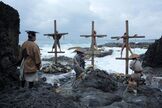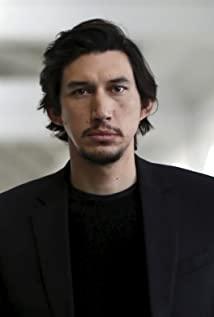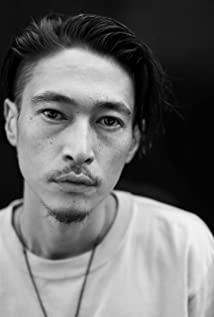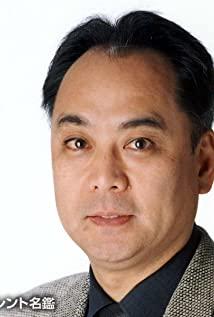After watching "Silence", the strongest feeling is that I want to say something. I don't know who to talk to, and I don't know what to say, but I can't keep silent all the time, so there are these mutterings below.
Perhaps this is the original intention of Scorsese and Endo. The whole movie is basically a process of breaking your silence with their "silence", but eventually bringing you back to silence. Throughout the cycle, you have little autonomy, your thoughts and emotions are led by the characters and the story, stimulated by their experiences, and touched by their choices. For the sake of filming, it has already been filmed in your mind, and you can't get rid of it or throw it away. You have words or silences, it's all part of you, all the while mixing in you.
"Speak or be silent, he's part of you", maybe that's the theme of this movie. It seems that this is what Garfield's priest Rodriguez eventually learned. He spoke or remained silent, obedient or resisted, to the shogunate. Faith was part of him.
The core plot of the film is the "fighting" between the priest Rodriguez and the shogunate official Inoue-sama. Inoue-sama wanted the priest to apostate openly and turned him into a laughing stock, so that the Japanese could see that even the most steadfast priest would betray God; Rodriguez has always resisted to the death, using all his strength to maintain "Japan's last The dignity and bottom line of a priest". Until the end, Inoue-sama used the punishment of hanging by a hole on the Japanese believers, and threatened their lives, and the priest finally chose to abandon the religion. However, this compromise was not because of fear of the power of officials, not to obey his master's advice, or even to save those Japanese believers who were tortured by acupuncture, but because he discovered at the moment before abandoning religion: God He does not mind being abandoned by him, whether he lives or dies, whether he stands or falls, God is a part of him.
Rodriguez loved God and believers deeply. Inoue-sama pinpointed this, turning "God" and "believers" into a single-choice question, driving him into a dead end. Whether to give up believers for God, or to give up God for believers, staring at the Jesus statue in front of him, between stepping and not stepping, Rodriguez's pain reached its peak. It was this extreme pain that made him suddenly understand the reason why Christ suffered—Jesus came to the world and died on the cross in order to accept the betrayal of people, including the betrayal that Rodriguez is about to make now. Jesus understood his suffering, understood his betrayal, understood his disobedience, and persuaded him to do it calmly. So in the movie, Rodriguez heard this voice in his ear:
"Come on, it doesn't matter, step on me. I understand your suffering. I was born to share the suffering of others, and I took the cross for your suffering. Your life has been linked to mine. Now. Step on it."
In this painful, long and dramatic moment, Rodriguez took a leap of faith. He learned two things. The first is a cliché in the Christian faith that never fades away, namely that Christ's love for him is unconditional. This love will tolerate all his actions, even if he openly apostates, even if he doesn't live like a Christian in the future, this love will not detract from it. The realization of this love gave him the courage to obey all the demands imposed on him by the shogunate without worrying that God would annoy him. "What you have to do, do it quickly." This is what Jesus said to the traitor Judas at the Last Supper. Rodriguez was also curious. When Jesus said this, was it with disgust and anger, or with understanding? and love? Only when he himself was about to become Judas did he know the answer: "Come on, step on it, it doesn't matter."
Second, in addition to a deeper understanding of Christ's love, Rodriguez also made a breakthrough in his understanding of Christ himself. Jesus' death on the cross was a public betrayal of God the Father - being God, but losing to man, dying in a way that had no dignity. In the incident of the cross, Jesus, who claimed to be "I and the Father are one," made God's authority and power a laughing stock in the eyes of people. However, there is a paradox in Jesus' betrayal: He was ordered to betray. He was ordered to live and he was ordered to die, and on the cross he was ordered to remain incompetent, ordered to be ridiculed, ordered to remain silent in the face of everything. A similar fate happened to Rodriguez when Jesus commanded to "step up." The behavior he had despised all his life was now the master's order. To betray the master at the master's order is not true betrayal, but true loyalty. Abraham's Isaac-like experiment of faith is relived at this moment in history.
Inoue-sama tried his best to tailor the dead end for the priests, and God turned it into an avenue in one second. In the face of Japan's extremely xenophobic political environment, God's attitude is not to resist nor to leave, and to accept all humiliation silently, just like Jesus did. Since the master is like this, the servant will naturally do the same. Rodriguez has since been ordered to remain in complete silence and absolute obedience. He stepped on the statue of Jesus, wrote apostasy, lost his identity as a priest, and quietly listened to Japanese children mocking him as "Paul the apostate", and since then he has lived in Japan like an ordinary person, no longer preaching, no longer Pray again, and die in utter silence. The only difference in his situation with Jesus is that the Jewish chief priests wanted to turn Jesus into a dead man, and the shogunate wanted to turn Rodriguez into a living dead. The dead and the living dead, which is more cruel? It's hard for someone who has experienced it personally to have an answer. In the eyes of onlookers, the shogunate thought his faith had been destroyed, and Christians outside thought he had fallen, and only he himself had a clear conscience:
"Even though the Lord has remained silent, my whole life, to this day, everything I do, speaks to Him."
Endo's novel, Scorsese's film, both are fiction, but Rodriguez-esque beliefs are real. This state of belief is profound and unique, intangible and powerful. A person with this belief is not willing at first, but extreme circumstances and experiences force him/her to become a Taoist. He/she was forcibly stripped of all the labels of faith, reading the Bible, meeting, praying, spiritual practice, all things that could reveal "Christian identity", all disappeared in him/her, and only one piece of faith remained. Heart, beating silently in the depths. This kind of belief cannot be manifested in form, cannot be detected by the naked eye, will not be praised in society, will not be encouraged in the group, only his/her heart knows itself, and only God's Spirit can bear witness to it.
Paul said, "If Christ is in you, the body dies because of sin, but the spirit lives because of righteousness." (End)
View more about Silence reviews











